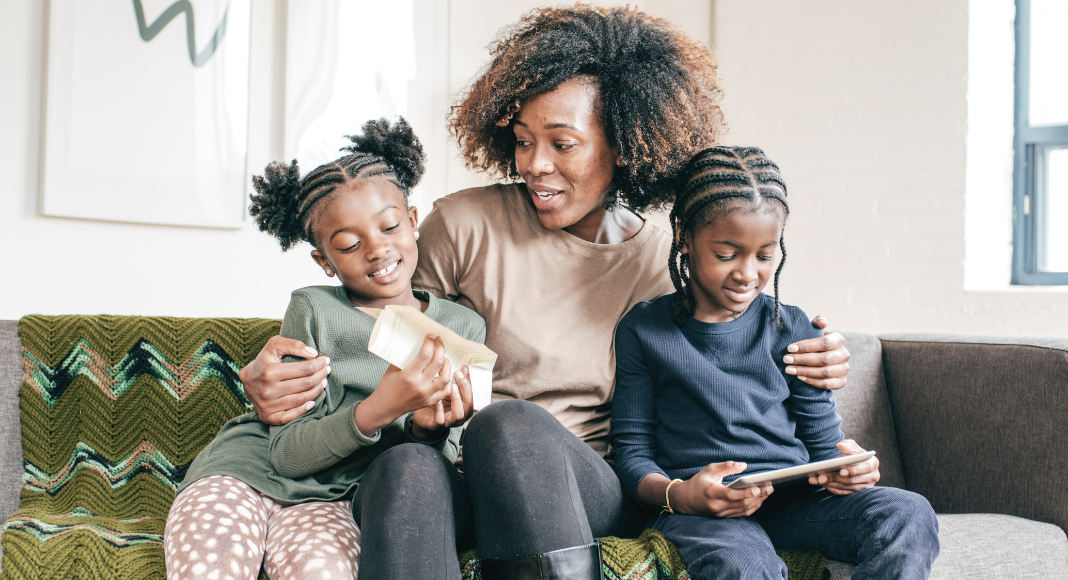Do you have a parenting hurdle you’re working through? If so, “The Parenting Post” is for you! One of our writers, Albiona, has been answering all of YOUR parenting questions over on IG, and we’ve turned her series into blog posts on our website as well. We just can’t get enough of her helpful advice, and we thought you’d appreciate it, too!
Her videos cover a wide variety of parenting questions–honestly, anything and everything! If it’s something you’re wondering, there’s a really good chance that another parent in our community is struggling with it, too. And Albiona is here to help!
 This week, she’s focusing on fostering confidence in our kids. How can we help our kids feel confident not only today, but well into their futures? There’s so much more to it than praise and reward, but trust us, seeing your confident kiddos will be SO worth it! Read on to see what Albiona recommends for fostering confidence in our kids.
This week, she’s focusing on fostering confidence in our kids. How can we help our kids feel confident not only today, but well into their futures? There’s so much more to it than praise and reward, but trust us, seeing your confident kiddos will be SO worth it! Read on to see what Albiona recommends for fostering confidence in our kids.
How do we help our children gain confidence?
At the end of the day, as parents, we want nothing more than to ensure our kids will feel confident, strong, and independent in the world. So, how do we help them get there? Confidence is gained through competence. We think of confidence as being attached to external praise, love, encouragement, and support. Those things are important, but that isn’t what’s going to achieve sustainable, long-term confidence.
That actually becomes shallow confidence. If we’re just looking to give our kids a lot of praise and tell them how wonderful they are and how they can achieve anything and they’re the best at everything, that is okay. It’s not that you’re doing anything wrong.
If that’s the only way we’re looking at gaining and growing confidence in our kids, though, then what ends up happening is that they’re always looking for those external pieces to validate whatever it is they’re doing, rather than going internal, learning and trusting themselves and recognizing that there have been times in the past where they’ve been able to push through and work through challenges, and they’ve been okay.
So to gain confidence, we want to let our kids work through challenges.
We want them to understand what it means to have grit. We want them to, during a dilemma, try to figure out how to solve it. As a parent, we are an automatic “fix-it” person. For example, your child comes to you. They’re overwhelmed, they can’t do something, they can’t build something. They feel frustrated. Our kneejerk reaction is to go in and fix it. We want to alleviate that pain and struggle that they are experiencing.
But the problem with that is, every time we jump in and fix it for them, we take away that opportunity for them to grow, work through that challenge, see that process through, and then to come out of it on the other side going, “Wow, I did it!”
Think of yourself. When you’re going through something challenging, and you work your way through it, when you come out of it on the other side, you feel amazing! There is so much to take away from that experience. If someone would have swooped in and saved you, you would have missed out on that opportunity for good self-growth.
Our kids are no different. They need those opportunities.
Sports and school are great ways to do it. We constantly want to make things easier for our kids, and it doesn’t have to be that way. There is gain in those opportunities, even though it feels terrible and we want to get in there and fix it and help them. We want to balance that and make sure that the space that we’re creating is loving, supportive, and we’re always there for them. But, we are allowing them to walk through that process, too.
Here is another example of this. I was listening to a parent describe this idea of competence and confidence and she was saying how she used to never let her child tie his shoes because it would take too long. So, she either tied them quickly for him, or she constantly bought him shoes that didn’t have laces. So she bypassed it each time.
This child ended up being nine or ten years old and unable to tie his shoes. So, the parent looked back, and thought about it. While she thought she was helping the situation, what actually ended up happening is that the messaging that that child was hearing was, “I won’t do it good enough. I’m not going to do it the way she wants me to do it. My way isn’t a good way, so I should just defer to her.”
We don’t want to give that messaging. So even though our heart is in the right place and we mean well, we need to think of what we’re taking away every time we jump in and fix a problem for our kids.
So remember: confidence is competence. We want to give opportunities for our kids to be competent.
Do you have more parenting questions for Albiona? Leave them below so she can possibly answer them for you. To learn more, you can follow Albiona on Instagram! Or, subscribe to her weekly newsletter and download her free guide teaching parents how to get their kids to listen.










